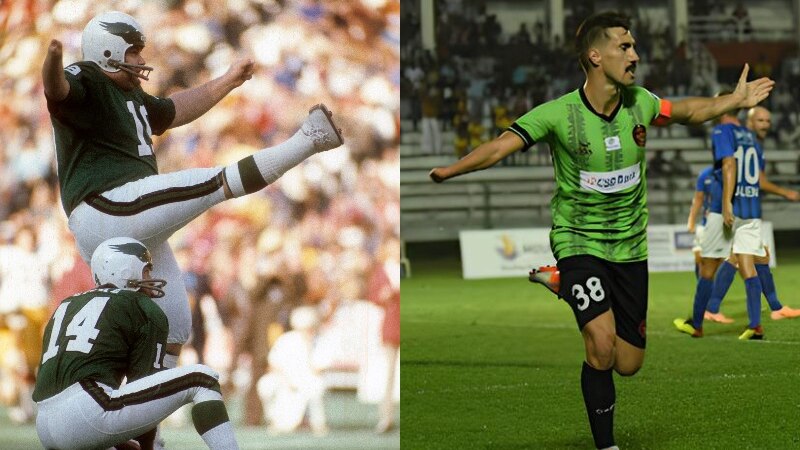A Moment of Unbelievable Skill and Resilience
Even 55 years later, the moment when Tom Dempsey kicked a 63-yard field goal to win a game for the New Orleans Saints remains one of the most extraordinary in American football history. The scene was set during a tense match against the Detroit Lions in November 1970, with the Saints struggling through a difficult season after firing their coach. Despite this, they had managed to keep pace with the Lions, setting up a dramatic finish.
With just seconds left on the clock, Dempsey, one of the league’s top kickers, took the field for what would be a record-breaking attempt. At the time, the longest field goal in NFL history was 56 yards, but Dempsey faced an almost impossible challenge from 63 yards out. His unique situation made the task even more daunting — he had only half a kicking foot, having been born without toes on his right foot and fingers on his right hand.
Dempsey’s kick was nothing short of miraculous. He approached the ball with a casual three-step walk, then struck it with precision. The ball soared over two-thirds of the field, clearing the goalposts in a stunning display of skill and determination. The crowd was stunned, and the television commentators were overwhelmed by the sheer magnitude of the moment. It was a rare combination of chance, talent, and spectacle that made the event unforgettable.
Disability and Representation in Sports
Dempsey is one of the few athletes with a disability who has made a significant impact in elite mainstream sports. While women’s sports have seen greater representation of disabled and neurodivergent athletes in recent years, men’s sports have lagged behind in this regard. This contrast is highlighted by figures like Álex Sanchez, a Spanish footballer who became the first player with limb difference to play in La Liga in 2009.
Sanchez’s journey was not without its challenges. As a teenager, he struggled with how his disability would be perceived by the public. When he finally made his professional debut at 19, the media attention was overwhelming. He was featured on the front page of a major Spanish newspaper with a derogatory term used to describe people like him, which left him shocked and disheartened.
Despite these early struggles, Sanchez eventually found his voice as an advocate for people with disabilities. He emphasized the importance of representation, noting that his own mother had no role model to look up to when he was growing up. Over time, he became a powerful figure in football, using his platform to inspire others.
The Sledgehammer Shoe Controversy
After Dempsey’s legendary kick, his custom-designed shoe became a point of controversy. The boot, which had a thick leather block at the front to accommodate his missing toes, was criticized by some as giving him an unfair advantage. Dallas Cowboys general manager Tex Schramm famously compared the shoe to a golf club with a “sledgehammer surface.”
However, the NFL ruled the shoe legal, and there was never any evidence that it provided an unfair edge. In fact, an ESPN Sport Science report suggested that the shoe may have hindered Dempsey’s performance. Despite this, the league implemented what became known as the “Tom Dempsey rule” in 1977, requiring players with artificial limbs to wear standard footwear.
Dempsey himself never accepted this ruling, arguing that the shoe was necessary for his success. “Unfair, eh? How ‘bout you try kicking a 63-yard field goal to win it with two seconds left and you’re wearing a square shoe,” he once said.
The Power of Role Models
For many athletes with disabilities, the presence of role models can be life-changing. For Álex Sanchez, the moment that stayed with him was when a young boy with a similar disability came to his hotel before his debut, thanking him for being an inspiration. This experience motivated Sanchez to become more vocal about disability issues, knowing that his story could help others.
Sanchez’s career took him to Australia, where he played for Sydney Olympic and became a key player, helping the team win its first championship in decades. His time in Australia was not only successful on the pitch but also off it, where he found a supportive community and a welcoming environment.
Today, Sanchez looks back on his career with pride, especially his time in La Liga. For him, playing in the top Spanish league while managing his disability was the highlight of his career. His journey serves as a reminder of the power of perseverance, representation, and the impact one individual can have on the world of sports.

